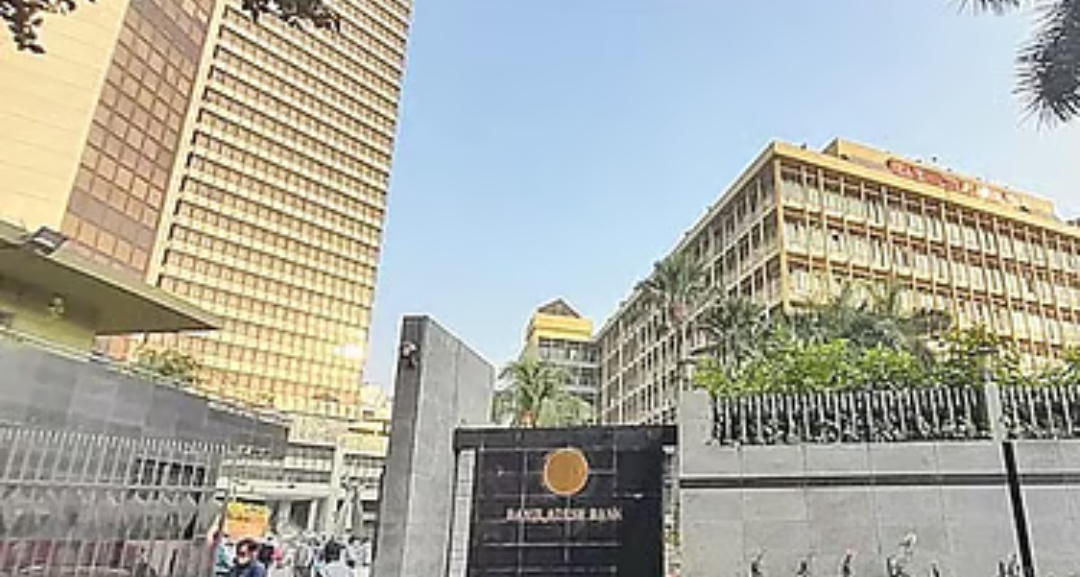Desk Report,
Improvement in foreign trade balance driven by commodity exports and expatriate income
The foreign trade balance (BOP), an important indicator of the country’s economy, has improved on the back of good growth in exports and expatriate income.
Improvement in foreign trade balance driven by commodity exports and expatriate income
According to the latest report of Bangladesh Bank, the BOP deficit has decreased to $660 million in the first 10 months of the 2024-25 fiscal year, i.e., July-April. A month before that, this deficit was $1.07 billion. And at the end of April last fiscal year, the BOP deficit was $5.57 billion. However, the deficit in the 2022-23 fiscal year was $8.22 billion.
The BOP deficit took a serious shape in the last two years of the ousted Awami League government. This put a strain on foreign exchange reserves. After the political change, the interim government took various initiatives, and the BOP deficit started to decrease. This stopped the decline in reserves. According to the central bank, on May 29, according to Bangladesh Bank’s own accounting system, foreign exchange reserves were $25.80 billion. Last year, at this time, the reserves were $24.22 billion. On the other hand, according to the International Monetary Fund’s (IMF) accounting system, the foreign exchange reserves were $25.7 billion on May 29. Last year, at the same time, the reserves were $18.72 billion. That means that usable reserves have increased by $1.85 billion in a year.
According to the Bangladesh Bank report, goods worth $36.57 billion were exported in the first 10 months of the current fiscal year. This export is 8.61 percent more than the same period of the last fiscal year. On the other hand, expatriate income of $24.54 billion was received during the July-April period of the current fiscal year. This income is 28 percent more than the same period of the last fiscal year.
Follow

Bangladesh Bank Photo: Prothom Alo
Based on good growth in goods exports and expatriate income, the balance of foreign exchange (BOP), an important indicator of the country’s economy, has improved.
According to the latest report of the Bangladesh Bank, the BOP deficit has decreased to $660 million in the first 10 months of the 2024-25 fiscal year, i.e., at the end of July-April. A month earlier, this deficit was $107 million. And the BOP deficit at the end of April in the last fiscal year was $5.57 billion. However, the deficit in the 2022-23 fiscal year was $8.22 billion.
The BOP deficit took a serious shape in the last two years of the ousted Awami League government. This put a strain on foreign exchange reserves. After the political change, the interim government took various initiatives, and the BOP deficit started to decrease. This stopped the decline in reserves.

More than 90 percent of goods are imported and exported through Chittagong Port. File photo: Prothom Alo
According to the central bank, as of May 29, Bangladesh Bank’s own accounting system had foreign exchange reserves of $25.80 billion. Last year, at this time, the reserves were $24.22 billion. On the other hand, according to the International Monetary Fund’s (IMF) accounting system, the foreign exchange reserves were $25.77 billion on May 29. Last year, at the same time, the reserves were $18.72 billion. That means that usable reserves have increased by $1.85 billion in a year.
According to the Bangladesh Bank report, goods worth $36.57 billion were exported in the first 10 months of the current fiscal year. This export is 8.61 percent more than the same period of the previous fiscal year. On the other hand, expatriate income of $24.54 billion was received during the July-April period of the current fiscal year. This income is 28 percent more than the same period of the previous fiscal year.

Expatriate workers have sent $24.54 billion in the first 10 months of the current fiscal year. Photo: Collected
According to the central bank, the current account balance ended with a large deficit of $6.61 billion in the 2023-24 fiscal year. The deficit in the previous fiscal year (2022-23) was even higher, at $1.163 billion. However, the current account deficit decreased to $1.39 billion in the first 10 months (July-April) of the 2024-25 fiscal year.
Generally, the current account is used to describe the country’s regular foreign transactions. It includes imports and exports, as well as other regular income and expenditure. If there is a surplus here, the country does not have to borrow money for current transactions. And if there is a deficit, it has to be covered by borrowing. Although imports increased slightly in the first 10 months of the current fiscal year, the deficit has decreased due to high growth in exports of goods and remittances.




